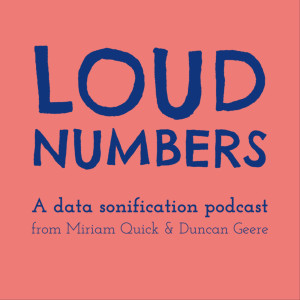
Canada is no stranger to wildfires. Since the last Ice Age more than eleven thousand years ago, at least half of the country’s huge landmass has been covered in forest, with small, naturally-occurring fires as a vital part of that ecosystem.
But the wildfire season of 2023 was different. Climate change, along with decades of short-sighted forest management policy, resulted in the largest fire season in North American history. Over the course of a few short months, a full five percent of the country’s forests were reduced to ash, while smoke caused air pollution emergencies across the whole continent.
Hold the Line is a piece of sound art generated by data from Canada’s 2023 wildfire season. Every single fire that was reported by the Canadian Interagency Forest Fires Centre between 1 April and 30 November is represented by a click sound, with each real-world day playing out over 2.5 seconds of sound. A bass note drops at the start of each new day.
Fires started by humans are represented by the distinctive ‘ting’ sound of a Zippo lighter, fires that started naturally by the sound of wood crackling (which sounds like a high click), and fires of unknown cause by a generic ignition sound (which sounds like a low-pitched lighter flicking on). During the worst of the season, you’ll hear more than 220 fires in a single day.
The background rumble represents the area of forest that burned that day. The larger the area burned that day, the louder, harsher and longer-lasting the sound. When many large fires burn for days, the rumbles blend into a roar. You’ll also hear a growing stack of musical notes that represent the cumulative area that has been burnt. As more forest is burned over time, more notes are added to the stack.
Finally, you’ll hear the voice of Fern Yip. Fern runs the Earthkin Wilderness School in the forests of British Columbia, and narrates the passing of each month — describing her experiences of fire during that season.
This episode was a collaboration between Loud Numbers and the Data is Plural podcast. In the fourth episode of the second season of Data is Plural, you can hear Bruce Macnab, head of Canada’s Wildland Fire Information System, describes how his team gathers information, the obstacles they face, how they deal with uncertainty and varying source quality, and how their approach has changed in the decade since the project launched.
More Episodes
 2024-04-12
2024-04-12
 2023-07-24
2023-07-24
 2021-08-02
2021-08-02
 2021-07-19
2021-07-19
 2021-07-05
2021-07-05
 2021-06-21
2021-06-21
 2021-06-05
2021-06-05
 2021-04-10
2021-04-10
Create your
podcast in
minutes
- Full-featured podcast site
- Unlimited storage and bandwidth
- Comprehensive podcast stats
- Distribute to Apple Podcasts, Spotify, and more
- Make money with your podcast
It is Free
- Privacy Policy
- Cookie Policy
- Terms of Use
- Consent Preferences
- Copyright © 2015-2024 Podbean.com






